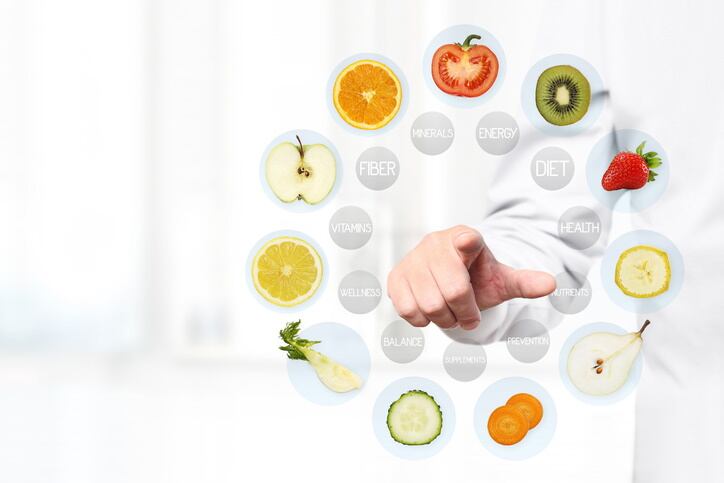COVID-19 has accelerated interest in functional ingredients that boost aspects of health and wellbeing, such as immunity.
“There’s been a notable shift from ‘healthy eating’ to ‘eating for health’, which has accelerated due to COVID-19 but was already gaining momentum beforehand. We expect this wider phenomenon to persist well beyond the pandemic. The specific focus on functional ingredients which may boost immunity is also likely to continue as awareness of the risks of respiratory illnesses (amongst others) will remain front of mind for many people,” Phil Mackie, Managing Partner for Food and Beverage at Sagentia Innovation, told FoodNavigator.
This has boosted F&B innovation around wellness ingredients. “It’s exciting to see the preventative nutrition space developing; there’s a real buzz surrounding functional ingredients which may have health-boosting properties.”
However, Mackie warned, there is a risk that consumer expectation has overtaken scientific evidence. Technical matters such as functional ingredients’ extraction, large-scale production and integration within food matrices can also present major challenges.
“There are some emerging ingredients which may benefit specific areas of health, but more scientific and clinical research is needed before manufacturers can move towards making robust claims about them,” he noted.
Regulatory complexity and compliance
A lack of harmonisation in global regulations which impact these products needs to be taken into account. “Regulatory requirements vary across different markets, and this stimulates different approaches to research and product development. In the EU for example, progress may be faster when manufacturers develop new products which use the known palette of ingredients rather than ingredients classified as novel,” Mackie elaborated.
Considering regulatory aspects at an early stage in product development is especially important, to ensure product claims don’t inadvertently stray into the territory of therapeutics and their associated regulatory regime, the consultancy noted.
These concerns mean it could prove preferable to tap into the ‘eating for health’ trend without explicitly making health claims that require regulatory approval, Mackie advised.
The trend speaks to ‘an enduring need for food and beverage products that promote health and wellbeing’ and aid recovery from illness. “To some extent, this is about calling out the specific health benefits of foods that we already eat. Hard claims, where an ingredient or product is overtly associated with a health outcome, are not always permissible or desirable. However, it’s still possible to ride the wave of consumer awareness and understanding of benefits conferred by certain ingredients,” we were told.
Six ‘key ingredient types’ for healthy innovation

In terms of health and immunity, Mackie told us that there are six ‘key ingredient types’ thought to be ‘biologically relevant’:
- Micronutrients: “Vitamins and minerals are known to play a vital role in immunity and their deficiency can lead to severe immune impairment. Some, such as vitamins A, B6, B12 and D as well as copper, selenium, iron and zinc are already approved for immunity claims in food and beverage products in the EU. However, the wording for these claims is strictly regulated.”
- Macronutrients: “Protein, fat and carbohydrates provide the energy needed to aid recovery from illness. They may also play a preventative health role, for example in the development of mucus barriers.”
- Polyunsaturated fatty acids: “These macronutrients are known to perform an anti-inflammatory function. Omega 3-fatty acids are widely believed to be beneficial in the prevention and treatment of cardiovascular disease too.”
- Antioxidants: “Many phytochemicals, or plant-based extracts, are believed to aid the protection of cells, which may boost immunity. However, there are currently no authorised claims for food and beverage applications.”
- Probiotics: “It’s often cited that 70% of immunity cells exist in the gut and consumers are increasingly aware of the importance of digestive health. There is some evidence that probiotics may reduce the duration of gastrointestinal and respiratory infections in older people as well as supporting vaccine efficacy. These ingredients may also suppress the development of allergies.”
- Prebiotics: “These food compounds induce the growth or activity of beneficial microorganisms. Beta-glucan has been shown to have immunomodulatory properties, as has arabinoglucan.”
Functional ‘not synonymous’ with processed
Does adding in functional ingredients to products, such as fortifying with micronutrients, fly in the face of another mega-trend shaping F&B innovation – consumer demand for clean labels?
Mackay doesn’t think so. “Functional ingredients don’t have to be synonymous with processed food,” he insisted.
The innovation expert pointed towards developments in biofortification as a prime example of how functionality can be built into food products from the ground up.
“The biofortification of natural produce is a really exciting area enabling whole foods to be nutritionally enhanced. Players in this space include HarvestPlus, which uses traditional plant cross-breeding methods to create biofortified food crops that are rich in vitamins and minerals.
“Another organisation that’s attracting attention is Pairwise. It uses gene editing approaches to develop agricultural products with enhanced traits that help make fresh, healthy food available to more people more of the time.”




